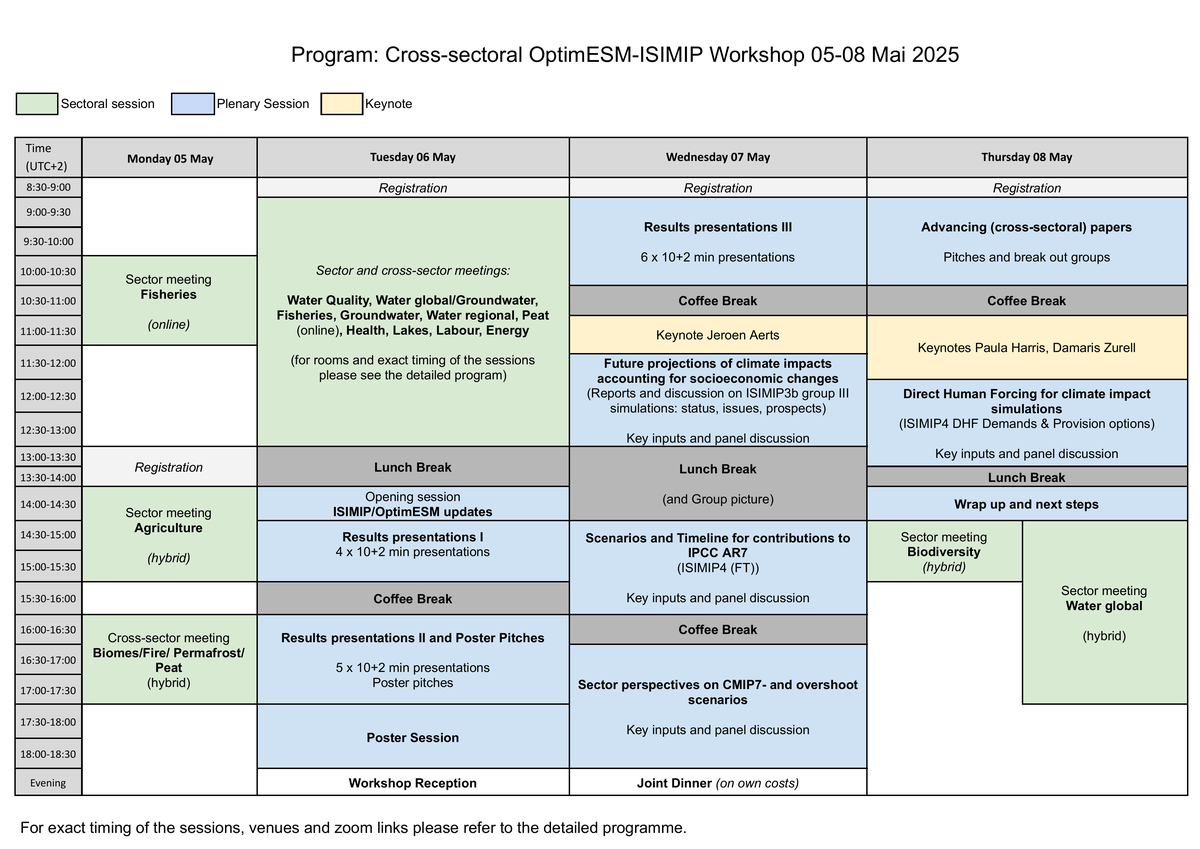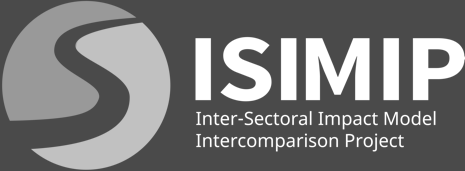The workshop, while serving as the main annual ISIMIP workshop, was an activity as part of the Horizon Europe project OptimESM, and an excellent opportunity to connect the climate and climate impact modelling activities with regard to potential inputs to the IPCC Seventh Assessment Report (AR7). In line with that, it included dedicated discussion sessions integrating the ESM, IAM and ISIMIP communities:
- to identify options to define an “ISIMIP4 Fast Track” simulation round dedicated to provide climate impact model simulations based on the latest generation of ESM simulations in time for IPCC AR7,
- to discuss data needs with regard to variables, bias-adjustment, and downscaling ,
- to identify challenges in representing overshoot dynamics as a prominent characteristic of the OptimESM and CMIP7-ScenarioMIP scenarios both from the climate as well as the climate impact modellers perspective,
- to discuss and prepare decisions on specific scenarios to focus on for the AR7.
Additionally, ISIMIP3 simulation results were presented both in context of impact model evaluation and impact attribution (ISIMIP3a), as well as future projections of risks (ISIMIP3b) with a focus on what we still have to learn regarding the preparation and application of the newly provided direct human forcings.
There were slots for presentations, break-out groups, discussion rounds, etc. within the various sessions, as well as dedicated sectoral meetings, a poster session, and networking activities.

